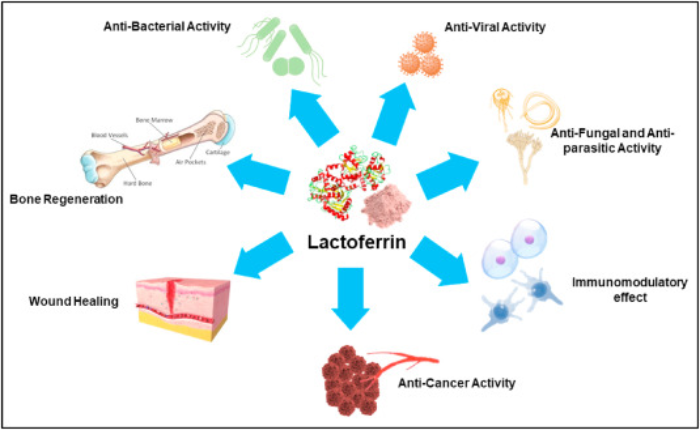Zoetis Updates Librela Label Following FDA Review
Zoetis Inc. has announced an update to the U.S. label for Librela® (bedinvetmab injection) after submitting a supplemental application to the U.S. Food and Drug Administration (FDA). This revision follows over a year of real-world use since Librela’s launch in the U.S., reflecting post-approval experiences and additional safety monitoring. The company reaffirms its confidence in Librela’s safety and effectiveness, implementing the updated label immediately as part of its dedication to supporting veterinarians and pet owners.
Librela, a monoclonal antibody therapy administered as a once-monthly injection, is designed to manage pain associated with osteoarthritis (OA) in dogs. Approved by the FDA in May 2023 and launched in the U.S. in October 2023, the treatment has since been administered to over one million dogs in the country.
Zoetis has actively collaborated with the FDA, sharing pharmacovigilance data and real-world reports on Librela’s safety and efficacy. Such label updates are standard practice in the pharmaceutical industry, particularly in the initial years following a product’s release, as companies collect and analyze real-world usage data.
Since its European debut four years ago, Librela has reportedly improved the lives of millions of dogs suffering from OA pain. Globally, nearly 25 million doses have been distributed. According to the European Medicines Agency (EMA), no single adverse event has been reported at a rate exceeding “rare” (defined as fewer than 10 cases per 10,000 treated animals, with each dose equating to one treated animal).
“At Zoetis, the well-being of pets is our top priority. We continuously strive to support veterinarians and pet owners by providing them with the necessary resources to make informed decisions regarding their pets’ health,” stated Dr. Richard Goldstein, DVM, DACVIM, DECVIM-CA, Global Chief Medical Officer and Head of Medical Affairs for Zoetis. “Every medication comes with both benefits and potential risks, making open communication between pet owners and veterinarians essential. With nearly 25 million doses distributed worldwide, we firmly stand behind Librela and its positive impact on dogs experiencing osteoarthritis-related pain.”
Commentary by SuppBase Columnist Alice Winters

Zoetis’ decision to update Librela’s labeling is a standard yet significant move in the pharmaceutical sector, particularly for a novel biologic therapy like bedinvetmab. The announcement highlights an important aspect of post-market surveillance: the necessity of real-world data to refine safety information. While Zoetis expresses unwavering confidence in Librela, the update raises several critical points for discussion.
Safety Monitoring: A Necessary but Understated Concern
Zoetis underscores that no adverse event has been reported above “rare” frequency per EMA standards, which sounds reassuring at face value. However, rare events can still be significant when scaled up to millions of doses. Transparency in detailing the specific nature of reported side effects would enhance credibility. Are these primarily mild reactions such as injection site irritation, or are there more serious concerns such as immune-mediated responses? The omission of detailed adverse event data leaves room for speculation.
Efficacy and Market Penetration
With over 25 million doses distributed globally, Librela appears to have established a strong foothold in the veterinary pain management market. However, the key question remains: how does its efficacy compare to traditional NSAIDs, which remain the gold standard for OA pain control? While monoclonal antibodies offer a novel mechanism of action and a potentially safer profile, real-world comparative data against NSAIDs would offer a clearer picture of Librela’s standing in veterinary medicine.
Long-Term Implications of Monoclonal Antibody Use
Monoclonal antibody therapies like Librela represent an innovative approach, but their long-term impact in veterinary medicine remains underexplored. Issues such as immunogenicity (where the body develops antibodies against the drug, reducing efficacy over time) and potential off-target effects should be closely monitored. The absence of long-term data leaves veterinarians and pet owners with unanswered questions regarding sustained use.
Zoetis’ Market Strategy: Confidence or Damage Control?
While Zoetis frames this update as a reaffirmation of Librela’s safety, label changes can sometimes be indicative of emerging concerns. The company’s emphasis on “confidence” and “commitment to safety” suggests a proactive approach, but it also subtly acknowledges that ongoing pharmacovigilance is necessary. Whether this update is merely procedural or a response to emerging trends in reported side effects is a question that merits closer scrutiny.
Final Thoughts
Librela represents a promising advancement in canine OA management, but its evolving safety profile warrants continued observation. While Zoetis’ update demonstrates responsible pharmacovigilance, more transparency on specific adverse event trends and comparative efficacy data would strengthen trust among veterinarians and pet owners. In the rapidly expanding field of veterinary biologics, the balance between innovation and long-term safety remains an ongoing dialogue.



